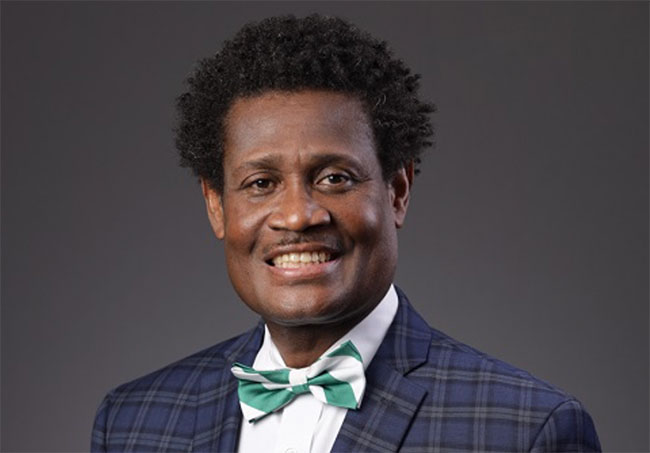Camillus Health Concern Receives 5 CHQR Badges
 By Lois Thomson
By Lois Thomson
“We strive to keep our quality top-notch,” said Francis Afram-Gyening, CEO of Camillus Health Concern. CHC is a community health center whose purpose is to help people experiencing homelessness and indigent people with health care services, and the organization was recently awarded five Community Health Quality Recognition (CHQR) badges. There are 1,400 community health centers in the nation, and the badges recognize health center programs that have made notable quality improvement achievements in the areas of access, quality, health equity, and health information technology.
The five badges CHC received were: (1) Health Center Quality Leader, which recognizes health centers that improve quality of care and achieve best overall clinical quality measure performance. CHC was within the top 10%. (2) Access Enhancer, which recognizes health centers that increase the total number of patients they serve who receive at least one comprehensive service (e.g., mental health, vision, dental) by at least 5%. CHC showed an increase of nearly 6%. (3) Health Disparities Reducer, which recognizes centers that meet or exceed goals in the areas of low birth weight, hypertension, or uncontrolled diabetes for at least one minority group, and demonstrate at least a 10% improvement in those areas. CHC was one of 98 centers to achieve this, meaning it was in the top 1% of health centers in the nation in this category. (4) Patient-Centered Medical Home Recognition, which recognizes centers in one or more delivery sites. CHC was among about 75% of centers in this category, as this is a core element of all health centers’ missions. (5) COVID-19 Testing, for centers that tested more than 50% of their reported populations from April 2020 to July 2021, and had a response rate of at least 50% to a COVID-19 survey. CHC was among less than 22% of centers to receive this.
With the level of quality offered by CHC, Afram-Gyening shouldn’t have been caught off guard by the awards, but he was. “We were surprised to receive those five badges. We had received one or two before, but to be given all of those at once! I am particularly proud of the COVID-19 award – we really tested a lot of people with community partners, the sheltered and unsheltered, people experiencing homelessness. So to be recognized for that was very satisfying.”
Afram-Gyening said each of the health centers must submit a Uniform Data Set report every year that details a great deal of information. The Health Resources and Services Administration analyzes the data and determines if and how much the health centers have improved. He said that, in CHC’s case, for example, they served 5,700 new patients in 2019, but in 2020, the number increased by more than 5%, to 6,000. “Frankly, we should have seen a reduction in total patients during the pandemic because people were reluctant to come to clinics, with social distancing and masking and all of that. But for us, we grew during the pandemic. That alone was a significant achievement.”
He said word of mouth is the number one way new clients come to the center. “The population we serve – they move around, they are transient. They know where they have to go for their evening meal, and word spreads easily.” Afram-Gyening also said CHC works very closely with other homeless service providers, particularly the shelters, and when the clients stay with them, they are often referred to CHC.
Camillus Health Concern is located in Miami, and Afram-Gyening said, “Our sole mission is helping those experiencing homelessness and the indigent population. The Little Brothers of the Good Shepherd was established in 1960 when the Cubans were fleeing Cuba under Castro’s regime. We welcomed them when they came to Miami. We clothed them, we housed them, and fed them. So that was the original idea, to help these new refugees; and that gave birth, in 1988, to Camillus Health Concern.”
Of the many services offered by CHC, Afram-Gyening commented on what he considers to be the most significant: “The most important service is to wake up every morning, come to work, and see the success this population has when they come to the clinic for dental care or behavioral health or primary care. To see the smiles when they leave the clinic is what seems like the most important. It is so hard for this population to seek care because most of them are not working, and they might be experiencing mental health and financial challenges, they are sleeping under bridges, not in homes. Too often they are greeted with disrespect or disdain. So for them to get up and say, ‘Today I’m going to see a dentist, I’m going to see my counselor,’ it gives me joy to be able to provide those services with dignity and respect to these individuals who need them most.”
For more information, call (305) 374-1065 or visit www.Camillushealth.org
